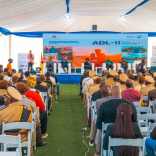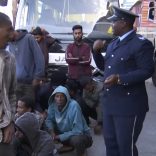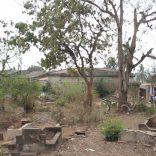Mozambique’s power export earnings drop 34% YoY in Q1 on water shortage
Mozambique: Minibus drivers return to work after promise of 6-month fuel subsidy

Image: DW
The Mozambican federation of road transport associations (FEMATRO) has reached a consensus for the resumption of public transport in the city and province of Maputo, after the government committed to paying a transport subsidy for the next six months.
The “chapas”, light vehicles that serve as public transport in Maputo, were at a standstill on Monday in protest against the rise in the cost of fuel, causing long queues and confusion in some areas of the Mozambican capital.
“We have reached a consensus, we will resume activities in a short time,” the leader of FEMATRO, Castigo Nhamane, told public broadcaster Televisão de Moçambique (TVM).
Nhamane said that the decision for the collective transport of passengers to start circulating again was taken after a consensus reached in a meeting held on Monday with the new minister of transport and communications, Mateus Magala.
At the meeting, Magala assured that the government will pay a transport subsidy for six months, repeating a promise that the Mozambican head of state, Filipe Nyusi, made last week.
The FEMATRO president advanced that a team from the ministry of transport and communications and the transporters will seek mechanisms to implement the proposal to pay the subsidy, including the amount and method of disbursement.
“Within two or three days, we will finish technical details, the minister [of transport and communications] has already appointed a team that is working with us so that within two or three days we will have the matter closed,” Castigo Nhamane stressed.
The subsidy, he continued, will relieve the transporters of the “financial suffocation” in which they find themselves, due to the recent increases in fuel prices.
Several people told Lusa yesterday that drivers had pulled their buses over at the main terminals on the outskirts of the capital, forcing passengers to wait for a long time at the stops, who then ended up walking several kilometres or returning home.
Police were deployed at some of the main bus terminals, such as Xipamanine, Xiquelene, Compone, Zimpeto, Benfica, Malhazine and Magoanine.
Some buses tried to ” break through the strike” but were prevented by their colleagues, who demanded the removal of the passengers on board.
Fearing looting, street vendors did not put their products for sale on some pavements of avenues and streets of Maputo, as is customary in this type of activity.
On Friday, Mozambique’s energy regulatory authority (ARENE) announced the third fuel price hike this year, with cooking gas up almost 20 percent.
The new prices came into force on Saturday.
Petrol rose from 83.30 meticais (1.24 euros) per litre to 86.97 meticais (1.30 euros) and diesel went from 78.97 meticais (1.18 euros) to 87.97 meticais (1.32 euros) per litre.
In 2008 and 2010, the increase in the price of road transport, accompanied by a rise in the cost of essential goods and services led to popular uprisings in some of the country’s main cities, resulting in clashes with the police and destruction in some places.












Leave a Reply
Be the First to Comment!
You must be logged in to post a comment.
You must be logged in to post a comment.